Is the idea of packing up and hitting the open road, in search of new adventure, beginning to occupy your brain on a daily basis?
If so, you might be ready for the world of RV camping.
Numerous styles, price points and the appeal of traveling the country for less are leading to a major resurgence in motorhomes, travel trailers and camper vans.
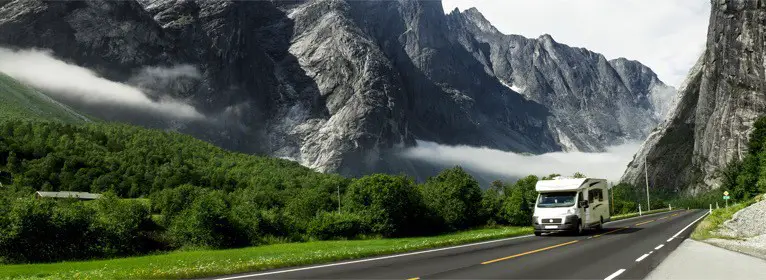
Continue reading below where we’ll provide valuable insight and helpful comparisons for anyone considering whether an RV is right for them.
Don’t have time for the in-depth analysis below? Check out a basic summary of the pros and cons:
Pros
- Maximum comfort while traveling
- Longer camping season – weather not as much of an impact
- Space to accommodate friends and family
- Campsites more affordable than hotel rooms
- Greater storage capacity for gear
Cons
- Increased road hazards/concerns while driving
- Storage & maintenance costs can be high
- Often requires a high-capacity personal vehicle – large truck/SUV
RV Camping Defined
The growing number of options available to prospective recreational vehicle owners can make choosing the right style a daunting task.
Let’s take a closer look at the different styles that fall under the classification of RV.
Motorhomes
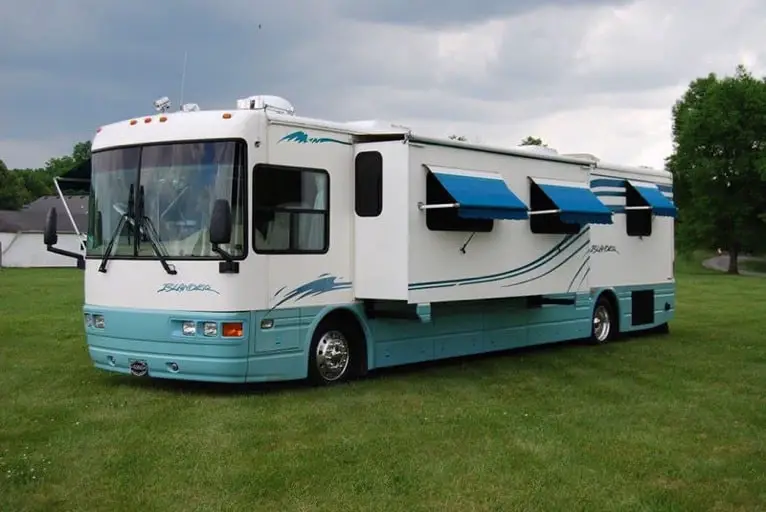
A motorhome is, likely, what you picture when hearing the term ‘RV’.
These campers are driven as one unit, where the driver’s cockpit is part of the same chassis on which the living area is built. They are, further, broken down into classes:
Class A
These campers are built on a truck, commercial bus, or custom-designed chassis and feature a cockpit that is accessible from the living area.
The front window is usually oriented in a vertical manner, mimicking that of a bus.
Class B
More commonly referred to as camper vans, class B motorhomes are the result of van conversions. Still driven as one unit, these campers are much smaller, offering fewer luxuries but better fuel efficiency.
Class C
If the sleeping quarters are located above the driver’s cab, then you are likely looking at a class C motorhome.
Built on chassis with a cabin, separate from the living quarters, these campers are a nice compromise.
5th Wheels
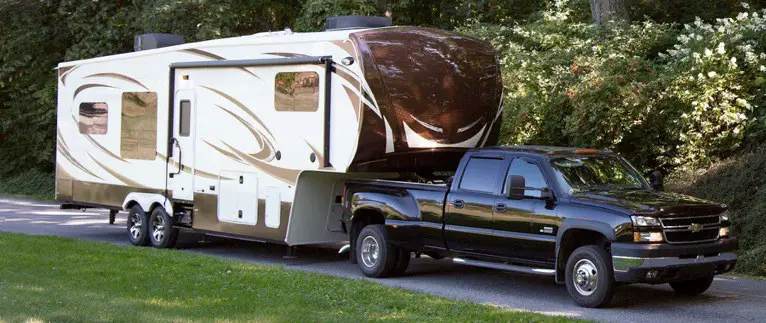
Designed to be towed by a truck that has been fitted with an in-bed hitch coupling, as opposed to a traditional hitch, 5th wheel campers are another popular option.
While they do come in a variety of lengths and interior square footages, 5th wheels are, typically, larger than most other RV’s, outside of class A motorhomes.
Travel Trailers
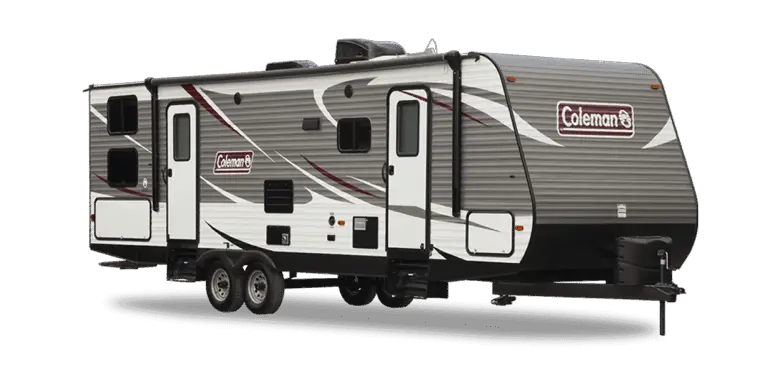
Made famous by the silver bulleted airstreams, seen roaming the country in the 1950’s and 60’s, camper trailers are those campers that are towed behind a vehicle with a secure hitch installed beneath the rear bumper.
Pop-up Trailers
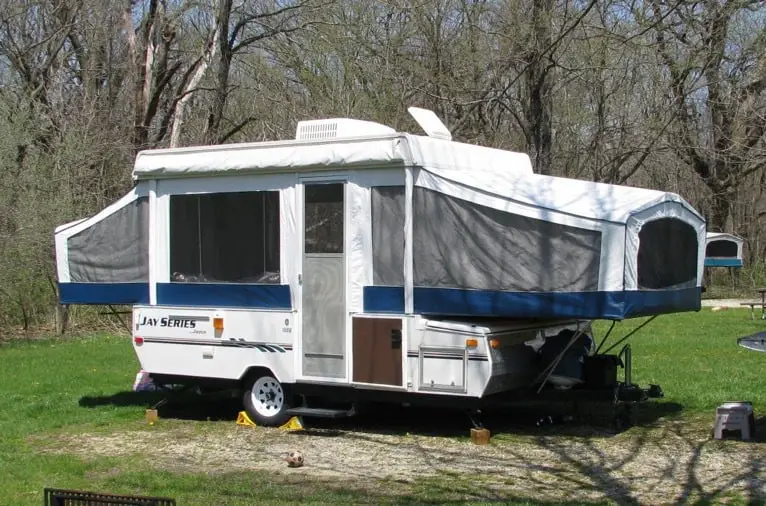
Unlike all of the styles mentioned above, each of which is rigid in structure, pop-ups utilize a soft-sided panel construction. This allows them to fold up into an incredibly small and lightweight package for towing behind most consumer vehicles.
Pop-ups focus on space to sleep and don’t have the amenities such as sinks, kitchens or bathrooms seen in larger RV models. But still you can find numerous interesting exceptions.
Other Options for Campers
As participants on many outdoor adventure trips, we have experienced numerous options available to campers.
When planning for an upcoming trip, you must decide what makes the most sense for you and your family. Here are just a few of the other camping options we have seen throughout the country, in addition to RV camping:
- Tent camping
- Backcountry camping (backpacking)
- Cabins
- Yurts/Glamping
Comparisons
Comfort
If comfort is your primary concern when exploring new places, then this will be an easy decision.
I’ve yet to find a tent that contained reclining chairs, kitchen counters, sinks, oven, refrigerator, bathroom, bedroom with best quality RV mattress, etc.
Until they find a way to fit all that into a tent, traveling by RV will continue to be your best chance of feeling at home while on the road.
While some campground yurts and cabins may contain similar features without the need to haul them with you down the road, you will still sacrifice the personalization and overall comfort of your own RV.
It’s hard to replace the peace of mind at the end of the day from being in a place that is all your own, with no worry of who has used it previously or whether towels, sheets, and linens are well kept/cleaned.
We, also, love how the increased interior space, especially when compared to tents or small cabins, makes traveling with a family a more enjoyable experience.
Not having to step over three or four human burritos when making a bathroom run in the middle of the night is a nice change of pace.
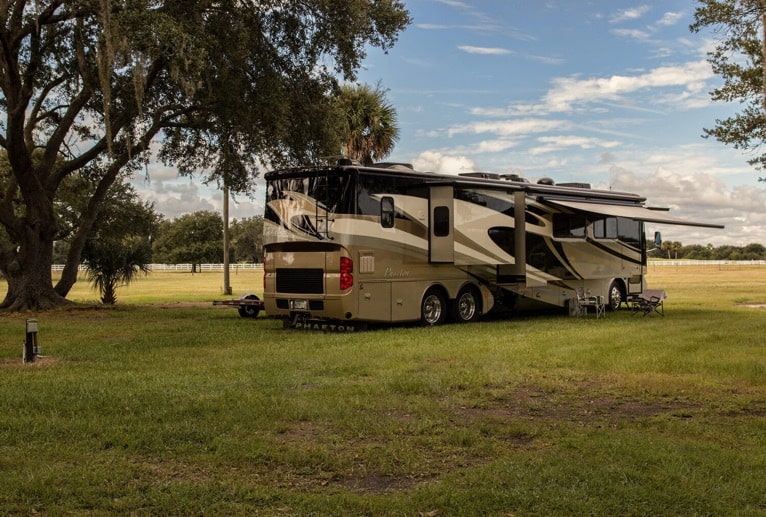
Ease of Travel
Those who have never driven a larger vehicle or towed something before will have a steep learning curve when traveling with an RV for the first time.
Gone are the days of tossing your camping gear in the trunk and speeding off to your destination.
With an RV you’ll have to establish hitch connections and ensure that interior items are properly strapped down before ever hitting the road.
Often, homeowners associations don’t allow the storage of RV’s at an owner’s property and so many folks must travel just to retrieve their camper from a dedicated storage facility. Only then you are able to start the journey towards your, actual, camping destination.
Driving or towing an RV, also, brings about many new road hazards.
Wind speeds can affect your safety on the road. Bridge heights must, now, be considered with every turn (Check out the Garmin RV 660, which allows you to enter the height/weight/length of your RV so that the only routes displayed are suitable for your setup).
Speaking of turns, you’ll need to practice much wider turns than you may be used to in your everyday car.
Campsite availability
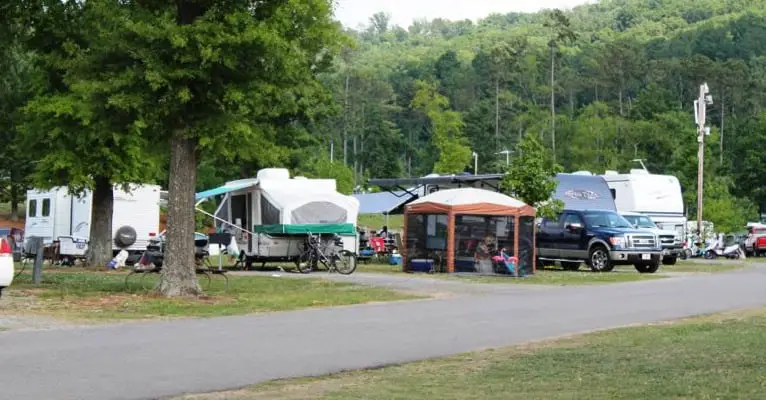
With campgrounds scattered across the country, there is no shortage of available places to park your RV for a night when exploring a new place.
Due to the increased size of many modern RV’s, and their growing popularity, however, finding suitable campsites can be a challenge.
Many popular travel weekends, particularly holidays and most weekends in summer, result in site reservations filling up months in advance. Depending on the length of your camper, there may, also, be a limited number of sites in a campground which can accommodate it.
Be sure to book your travel well in advance for the best choice of sites.
Convenience
This can be a tough category to definitively classify as either a pro or con of RV camping.
There are, both, gains and losses in perceived convenience while exploring in an RV. How you view this discrepancy will depend on your own travel preferences. We’ll help you break it down below:
More Convenient
- More gear storage options with a camper
- Less to pack up and break-down every trip
- Better meals while camping with stove, oven & refrigerator
- Quick set-up upon reaching your campsite = more time to explore
- Private bathroom – No need to get dressed and walk to dirty bathhouses at 2am
Less Convenient
- Additional road hazards/challenges – the curvy mountain road you’ve always taken to reach your favorite campground may no longer be passable with an RV
- Backing into campsites can lead to frustration
- Holding tanks must be emptied after every stay
Cost
As with most aspects of life, comfort and convenience will come with a cost.
When all the costs are considered, RV camping is the most expensive camping option.
Spending $1,000 as a tent camper will, likely, get you everything you need to enjoy many weekends spent in the mountains.
As an RV owner, however, that same amount might purchase wheel bearings (must be replaced annually) and a roof, if that.
With quality travel trailers, conversion vans or motorhomes, you should expect to spend between $18,000 – $50,000. The campsites themselves also come at a premium, typically $25-$50 more per night, as compared to tent-only sites.
There is a silver lining, however, to the high initial cost of owning an RV.
Campsites are significantly more affordable than hotel rooms. Many people will choose to explore new parts of the country in an RV, not because they enjoy traditional camping (campfires, hiking, s’mores) but because they like the cost savings of traveling with a condo on wheels.
Required Maintenance
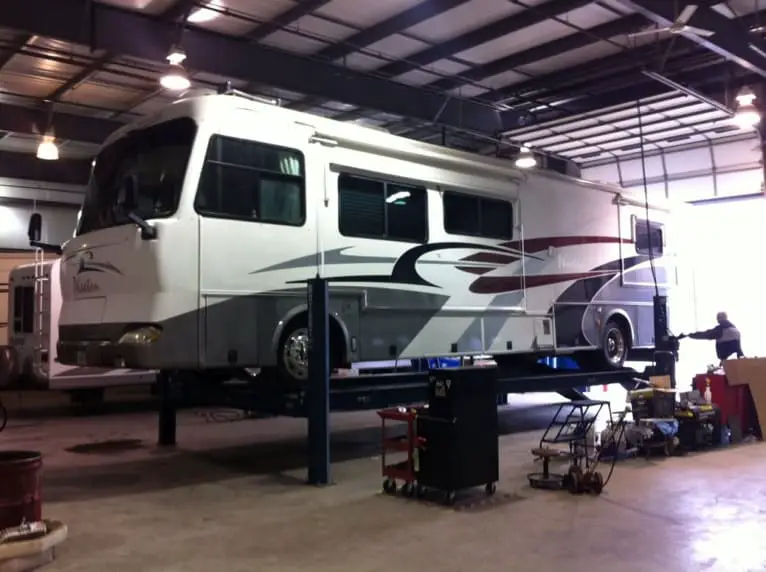
Just like with a car or boat, owning an RV will require considerable maintenance each year.
Winterizing tanks and pipes each winter, applying solar/rain protection to resin roofs and replacing tires are just a few of the many maintenance procedures required of RV’s (be sure to check out our guide on RV maintenance for a more comprehensive list).
Additional Factors to Keep in Mind
Storage
Many individuals interested in purchasing an RV neglect to consider the cost and convenience of nearby storage options.
As we alluded to above, many homeowners are unable to store their camper at their residence. You may need to search local storage facilities that permit campers and investigate their monthly costs (expect $60-$90/month).
Living in a more rural setting, with plenty of land on which to park it, can make the prospect of owning an RV even more appealing. Not only will you save the cost of storing it, but you will gain significant convenience by, simply, being able to walk out your door and leave. This, also, makes packing to go much easier.
Current Vehicle Towing Capacity
Be sure to consider your current vehicle’s towing capacity before purchasing a new, or used, RV.
We have spoken to multiple campers who purchased a travel trailer, only to realize that it put their vehicle, which they assumed was fine since it was a truck or SUV, at maximum tow capacity. That is a surefire way to turn one vehicle purchase (the RV) into two (a new truck capable of towing it) – an expensive endeavor.
Longer Camping Season
One of the advantages to traveling in a climate-controlled RV is less dependence on weather conditions.
Forecasts featuring overnight rain or cold temperatures, often, force many tent campers to cancel their plans altogether.
Knowing that you will have a dry, warm space waiting for you each night can be the difference between enjoying a weekend away or not going at all.
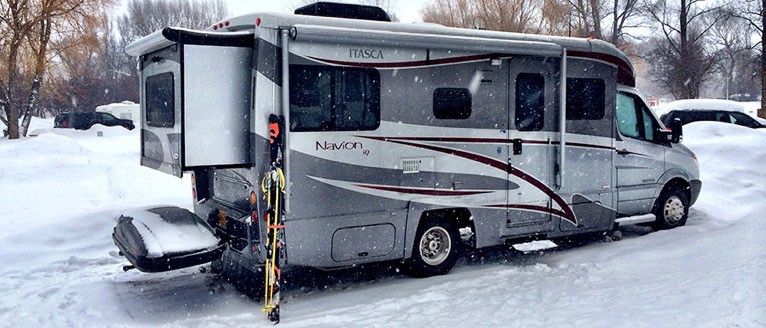
Final Thoughts
There’s no doubt that RV camping can be an exciting and affordable way to travel the country with your friends or family.
Many, particularly those with telecommuting careers or retired, are making the leap full-time, foregoing expensive mortgages, in favor of a simpler lifestyle.
Life on the road in a recreation vehicle doesn’t come without sacrifices and it won’t be the best option for everyone.
Taking the time to research the pros and cons, like we’ve highlighted above, will help prepare you for the exciting journey ahead, shall you choose to embark on your next adventure in an RV.
What concerns or excites you most about RV camping? Share with us below.
References:



![9 Final Thoughts And Items For Your First Camper Adventure [Checklist] 12 RV Camping Checklist](https://kempoo.com/wp-content/uploads/2018/11/first-camper-adventure.jpg)
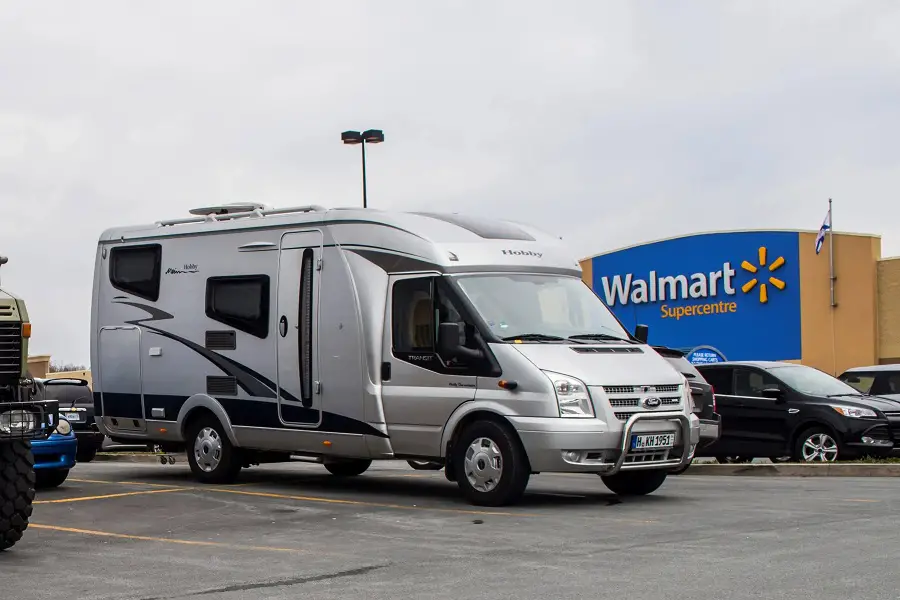
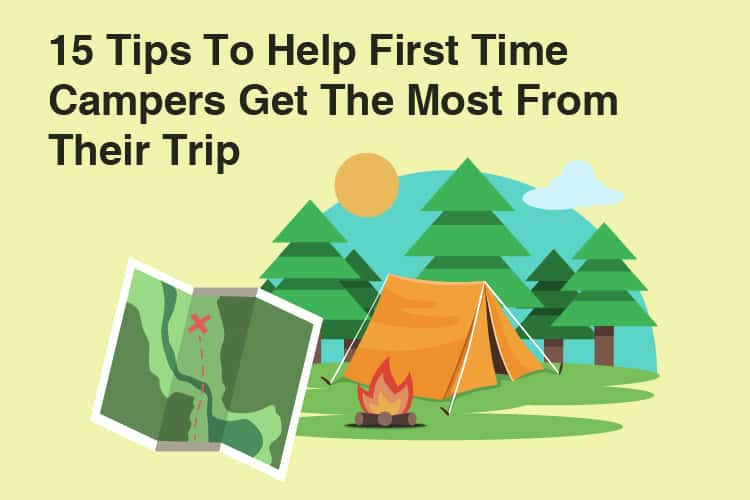
Wheel bearings every year? Hmmm! I don’t think so.
$60.00-90.00 a month for storage? Class A storage
in Central Florida market is $300.00 a month without power for trickle charging.. (that is for enclosed storage).
Consider whether you enjoy the journey or the destination more. I find I like to get where I am going and so don’t like the long days riding in an RV.
One thing that you forgot to mention is the fuel cost. Class A 33 foot is what we own, 8 miles a gallon, regular gas. But we love the beast. Planning a 2 1/2 month trip to states that we’ve not been.